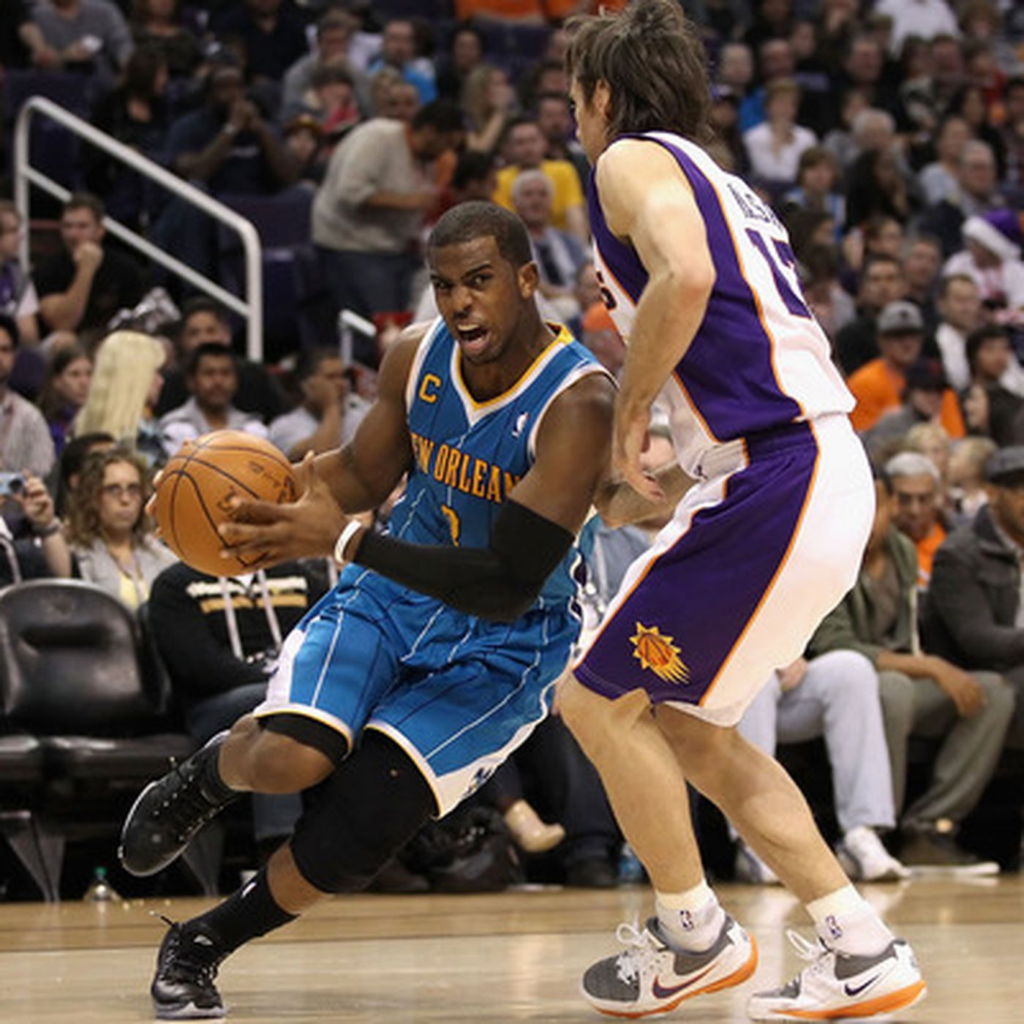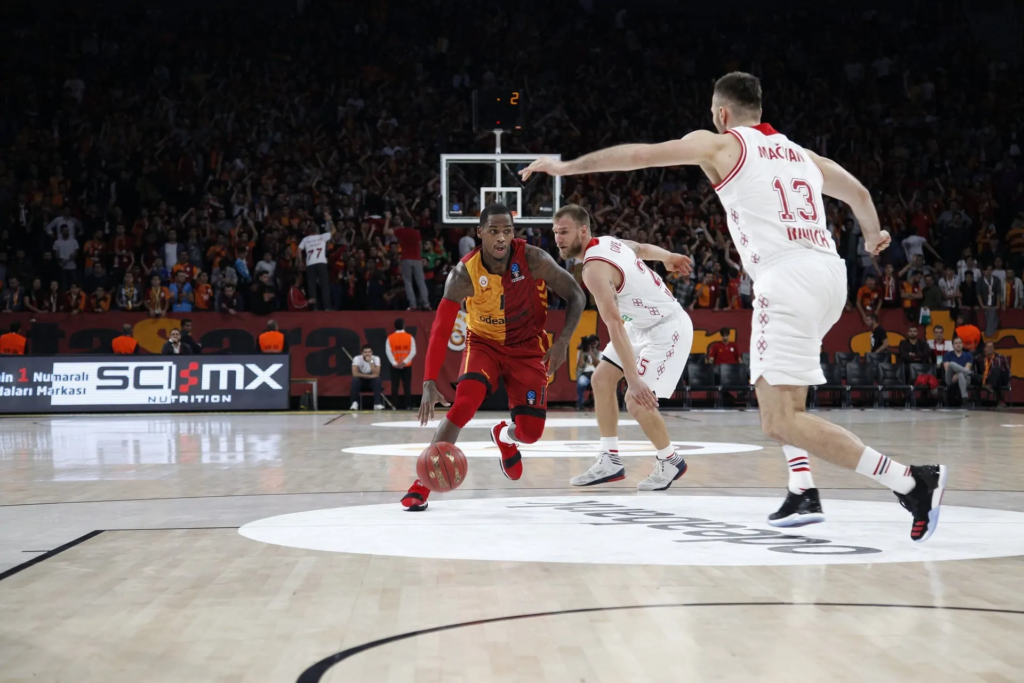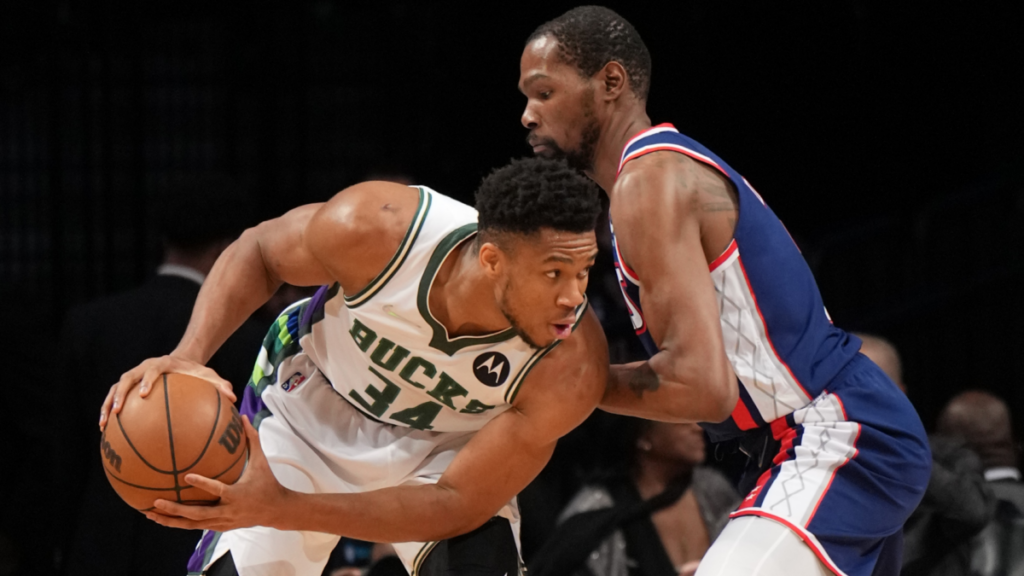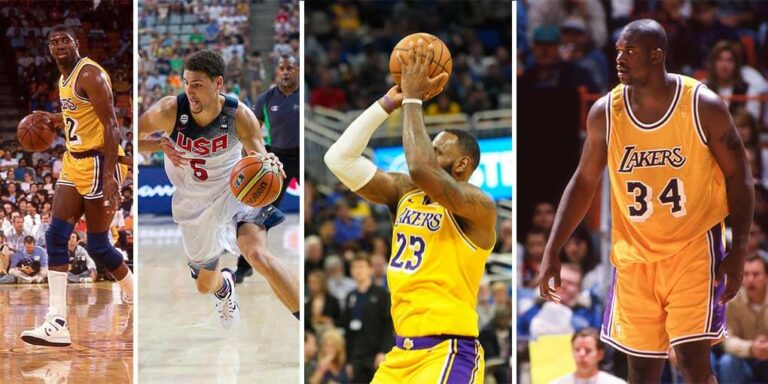In basketball, positions are crucial in shaping team dynamics and strategies. Each position carries specific responsibilities and requires unique skills and attributes. Here, we will explore the skills and attributes of effective players in each position and highlight some famous players who have excelled in these roles throughout basketball history.
What are Basketball Positions
Basketball positions refer to players’ designated roles and responsibilities on the court. These positions, including point guard, shooting guard, small forward, power forward, and center, help organize and structure the team’s offense and defense.
Each position has specific tasks and skill requirements, such as playmaking, scoring, rebounding, and defending, which contribute to the overall strategy and success of the team. Understanding basketball positions is essential for effective teamwork, player development, and strategic decision-making in the game.
The Importance of Positions in Basketball

The positions in basketball play a crucial role in shaping the game’s dynamics and maximizing the team’s performance. Each position has unique responsibilities and skills contributing to the team’s success.
By assigning specific roles to players, basketball positions help create a structured and organized approach to the game. They allow players to specialize in their respective areas: playmaking, scoring, defending, or rebounding. Positions also facilitate effective teamwork as players learn to work together, complement each other’s strengths, and cover each other’s weaknesses.
Moreover, understanding and utilizing positions strategically can give a team a competitive edge by exploiting matchups and creating favorable opportunities on both ends of the court.
Basketball Positions
Point Guard

Role and Responsibilities of a Point Guard
The point guard is often considered the leader and floor general of the team. They are responsible for initiating the team’s offense, setting up plays, and distributing the ball to teammates. Additionally, they are expected to be strong decision-makers, exhibit good court vision, and effectively control the game’s tempo.
Skills and Attributes of an Effective Point Guard:
- Confident dribbling with both hands and faultless handling of the ball.
- High precision passing the ball at short distances and cross-court.
- Speed and agility bring great speed and help drive the ball toward the basket.
- Confidence and leadership to excel in play calling and provide clear, vocal, and intelligent communication.
- A team mentality, being conscious of the whole team at all times, directing the play, and getting the ball to key players.
Famous Point Guards in Basketball History
Some iconic point guards in basketball history include Magic Johnson, John Stockton, Steve Nash, and Chris Paul. These players have excelled in their roles and significantly contributed to the sport through their exceptional skills and leadership abilities.
Shooting Guard

Role and Responsibilities of a Shooting Guard
The shooting guard primarily focuses on scoring and providing perimeter defense. They are often the team’s best long-range shooters and are responsible for stretching the defense, moving without the ball, and creating scoring opportunities. Additionally, shooting guards are crucial in guarding the opponent’s primary scoring threat.
On offense, the shooting guard focuses on scoring from various distances, primarily from the three-point line. On defense, the shooting guard emphasizes stealing the ball, securing rebounds, and guarding opponents with agility and speed.
Skills and Attributes of an Effective Shooting Guard
- The shooting guard should be a confident shooter.
- They need to be instinctive players who seek out open spaces and can break through the opponent’s defense line.
- A shooting guard should feel comfortable handling the ball.
- Should be able to read space and use it to their advantage, setting themselves up to score.
Famous Shooting Guards in Basketball History
Shooting guards such as Michael Jordan, Kobe Bryant, Dwyane Wade, and Ray Allen have made indelible marks on the game. These players have demonstrated their scoring prowess, clutch performances, and defensive skills, solidifying their status as legends of the sport.
Small Forward

Role and Responsibilities of a Small Forward
The small forward is a versatile position that combines guard and forward play elements. They are often known for their scoring ability, defensive versatility, and rebounding skills. Small forwards are crucial in providing offensive firepower and guarding multiple positions on defense.
Skills and Attributes of an Effective Small Forward
- Proficient ball handling, accurate shooting, and precise passing are essential skills for a shooting guard.
- Creating space, utilizing post-up games, strong defense, effective pick-and-roll defense, skilled dribble moves, finishing at the rim, and setting screens are all crucial aspects of the shooting guard’s game.
Famous Small Forwards in Basketball History
Small forwards like LeBron James, Larry Bird, Scottie Pippen, and Kevin Durant have dominated their positions and significantly impacted the game. These players have showcased their versatility, scoring prowess, and ability to impact the game in various ways.
Power Forward

Role and Responsibilities of a Power Forward
The power forward is typically responsible for scoring in the low post, rebounding, and providing interior defense. They often act as the enforcer on the team, using their size and strength to battle for position, secure rebounds, and protect the paint on defense.
On offense, the power forward focuses on shooting, scoring, and grabbing rebounds for second-chance opportunities. On defense, they guard the post, block opponents, disrupt passing lanes, and secure rebounds.
Skills and Attributes of an Effective Power Forward
- Power forwards must have secure ball-handling skills.
- Excel in gaining possession of rebound balls.
- Possesses a reliable jump shot.
- They are skilled at setting up their team’s ball handlers.
- Power forwards acquire the ball and maintain possession.
- Shot blocking and evading opponents come naturally to power forwards, aided by their height advantage.
- Speed and strength are essential for power forwards due to their diverse responsibilities.
Famous Power Forwards in Basketball History
Power forwards such as Tim Duncan, Karl Malone, Kevin Garnett, and Dirk Nowitzki have redefined the position with their scoring ability, rebounding prowess, and defensive impact. These players have left an indelible mark on the game and are regarded as some of the best power forwards in basketball history.
Center

Role and Responsibilities of a Center
The center is typically the tallest player on the team and is responsible for defending the paint, rebounding, and scoring near the basket. They serve as the last line of defense and often act as the team’s primary rim protector.
Skills and Attributes of an Effective Center
- Should have high levels of physical fitness and strength.
- Centers must possess quickness and agility to secure crucial rebounds.
- Centers benefit from being tall to excel in their role.
- Should demonstrate aggressive shot-blocking abilities.
- Must need to exhibit scoring skills and proficiency in the low post.
- Famous Centers in Basketball History
Centers such as Kareem Abdul-Jabbar, Shaquille O’Neal, Hakeem Olajuwon, and Wilt Chamberlain have left an indelible mark on the game. These legendary players have showcased their dominance in the paint, scoring prowess, shot-blocking ability, and rebounding skills, establishing themselves as icons in basketball history.
Conclusion
Understanding basketball positions is essential for players, coaches, and fans to grasp the game’s intricacies. Each position carries distinct roles, responsibilities, and skill requirements contributing to a team’s success.
By understanding the specifics of each position, from the point guard to the center, we gain a deeper appreciation for basketball players’ diverse talents and contributions throughout history.
Frequently Asked Questions
Are basketball positions strictly defined, or can players play multiple positions?
Basketball positions can provide a framework, but players often display versatility and can play multiple positions based on their skills and the team’s strategy.
What is the most crucial skill for a point guard?
While various skills are important, a point guard’s court vision and decision-making ability are paramount in orchestrating the team’s offense and creating scoring opportunities.
Can a small forward play as a shooting guard?
Yes, small forwards often possess the necessary skills to play as shooting guards, especially if they excel in perimeter scoring and defensive versatility.
How can players develop skills specific to their positions?
Players can develop position-specific skills through practice, coaching, studying the game, and improving their strengths while addressing weaknesses.
Is the center position becoming less important in modern basketball?
While the game has evolved to emphasize perimeter play, the center position remains vital for rim protection, rebounding, and interior scoring, providing a balanced approach to team dynamics.
